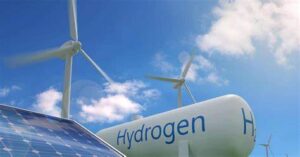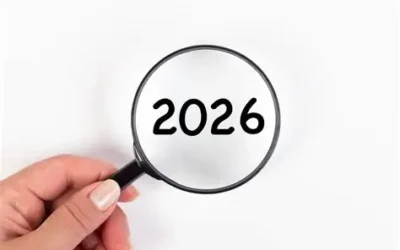
As the first quarter of 2025 is coming to an end, today’s article aims to delve into the latest updates regarding sustainability.
New Regulations for a More Sustainable and Competitive Packaging Economy
Freshly introduced measures aim to boost resource efficiency, foster a more circular approach to material usage, enhance competitiveness, and improve economic security.
As of February, the Packaging and Packaging Waste Regulation has come into effect, introducing new policies to address environmental challenges caused by excessive packaging. This initiative is set to significantly reduce greenhouse gas emissions, water consumption, and environmental costs within the packaging sector.
Simultaneously, the regulation presents new opportunities for the recycling and sustainability industries. It marks a crucial step towards establishing a more competitive, sustainable, and circular economy within the European Union.
The key objectives of these measures include developing a unified market for waste, secondary, and reusable materials; promoting recycling; and decreasing reliance on primary resources. The regulation also emphasizes reuse and refill solutions as alternatives to single-use packaging while improving consumer information. These policies will result in more sustainable packaging, enabling consumers to better reuse and sort their waste according to their country’s specific needs and business requirements.
Moreover, the regulation is expected to create new business prospects, generate employment, and drive innovation in packaging solutions. The enhanced efficiency of the recycling sector will be another added advantage. Additionally, restrictions on certain hazardous substances will ensure better consumer health protection and a safer environment. The European Commission is now focusing on implementing these measures effectively.
Sustainability Advances in the Aviation Industry
2025 marks a pivotal moment in the aviation sector’s path to achieving net-zero emissions. By September, updated national action plans detailing strategies for decarbonizing aviation must be submitted to the International Civil Aviation Organization (ICAO).
As part of these sustainability initiatives, the first sustainable aviation fuel (SAF) mandates took effect in Europe in January, with progressively stricter targets leading up to 2030. In the coming months, additional SAF plants are expected to finalize investment decisions and move towards construction. Anticipation is high for major policy decisions at COP30 in October, where aviation and clean fuel strategies will play a significant role in global discussions, including at the G7 and G20 summits.
Decisive actions taken by industry leaders and governments this year will be critical in ensuring aviation remains on track to meet internationally recognized environmental targets while maintaining inclusivity for all regions. The ICAO’s global vision mandates a 5% reduction in jet fuel carbon intensity within five years, with a long-term aspiration of achieving net-zero international aviation by 2050.
However, the industry is projected to experience significant growth by 2050, posing challenges for balancing sustainability efforts with expansion. Factors such as geopolitical instability, trade barriers, and evolving regulatory landscapes are influencing air traffic, policy direction, investments, and supply chain dynamics. These global events are shaping the potential for international collaboration—an essential component for a successful low-carbon transition in aviation.
In light of these developments, the World Economic Forum is committed to fostering collaboration among governments, aviation stakeholders, and the broader value chain. The goal is to accelerate the industry’s transition to net-zero emissions while ensuring sustainability remains at the forefront of its growth strategy.
The aviation sector has consistently demonstrated resilience in overcoming past challenges, from safety concerns to supply chain disruptions and the long-term effects of COVID-19. The focus now is on channelling this adaptability toward advancing sustainability initiatives and maintaining momentum in achieving a greener aviation industry. Key questions being addressed include:
- How can industry resilience drive greater sustainability?
- What actions should be prioritized to maintain progress toward sustainable aviation?
- Which risks should public-private partnerships address to speed up decarbonization efforts?
These critical discussions have shaped a new flagship report based on insights gathered from aviation executives at the end of 2024 and the beginning of 2025. This report will provide a comprehensive overview of market trends, stakeholder perspectives, and opportunities for continued collaboration in advancing aviation sustainability.
Germany’s Largest Green Hydrogen Initiative
In a significant step toward industrial decarbonization, TotalEnergies and RWE have signed Germany’s most substantial green hydrogen agreement. Under this deal, TotalEnergies’ Leuna refinery will receive 30,000 tons of green hydrogen annually starting in 2030. The initiative is expected to reduce carbon emissions by 300,000 tons per year.
This 15-year contract leverages a 300 MW electrolyser in Lingen, Germany’s largest such facility. The green hydrogen will be transported via a 600 km pipeline, replacing traditional hydrogen sources and significantly cutting the refinery’s environmental impact.
This agreement marks a milestone in Germany’s clean energy transition and underscores the increasing role of green hydrogen in achieving large-scale emission reductions across industries.
References
Directorate General for Environment . (2025, February 11). New rules enter into force for a more sustainable and competitive packaging economy. Retrieved from European Commission: https://environment.ec.europa.eu/news/new-rules-more-sustainable-and-competitive-packaging-economy-2025-02-11_en
ESG News. (2025, March 13). TotalEnergies, RWE Sign Germany’s Largest Green Hydrogen Deal to Cut 300,000 Tons of CO2. Retrieved from ESG News: https://esgnews.com/totalenergies-rwe-sign-germanys-largest-green-hydrogen-deal-to-cut-300000-tons-of-co2/
Neo, G. H., & Erbacci, J. (2025). Global Aviation Sustainability Outlook 2025. World Economic Forum .
Photo:
https://th.bing.com/th/id/OIP.FNMOIGJywlWRkLHDXR739wHaD4?rs=1&pid=ImgDetMain


